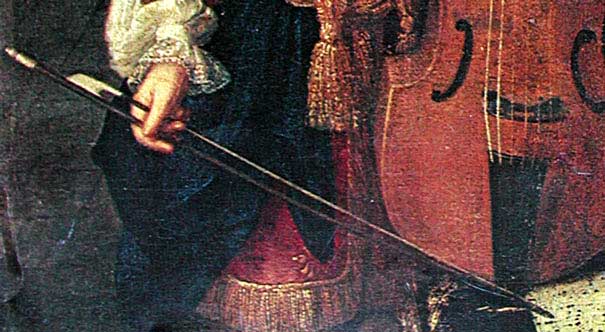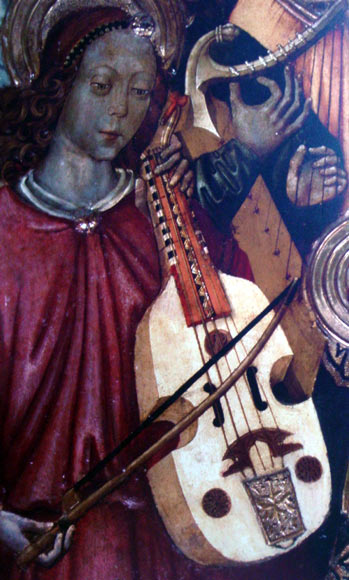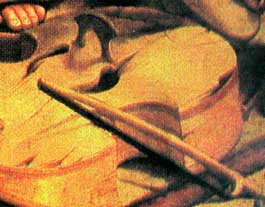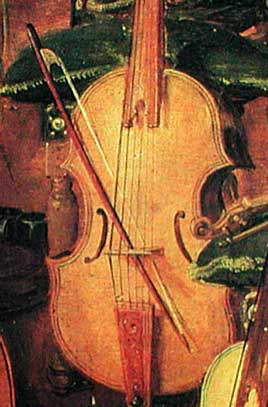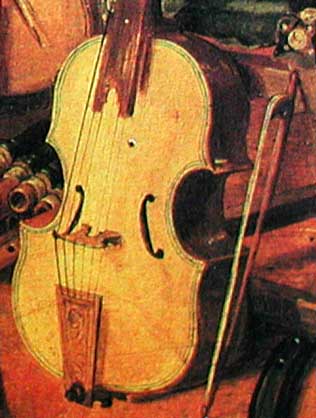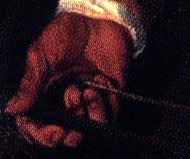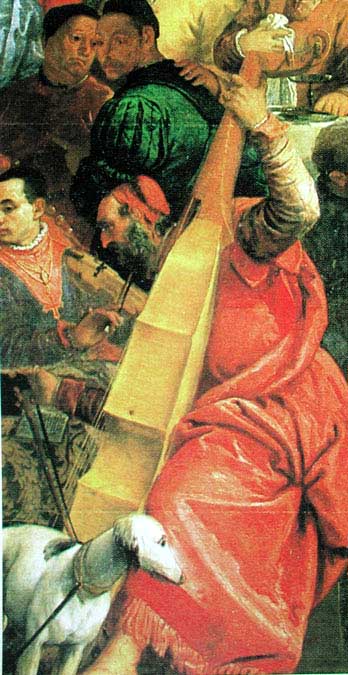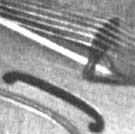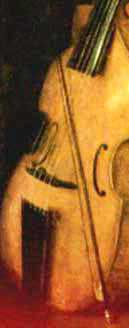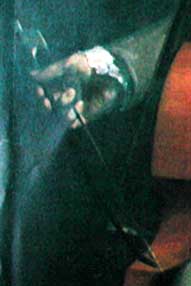Part II. An iconographical survey of bows
for the viola da gamba
Marin Marais: a long and elegant French bow for a bass viola da gamba, ca. 1690.
RENAISSANCE BOWS
Xàtiva (Spain): earliest painting of a viola da gamba (c.1475) Notice the black hair! These two bows do not have a separate head; the hair is simply attached to the end of the staff.
Raffaello (1518): detail of bridge and bow on a Renaissance viol, also with black hair
Note white hair on this early baroque tenor viola da gamba bow
Italy, 16th C.
This bow is being held at the frog, with two fingers on the stick, two at the frog, none on the hair.This Renaissance bow for the great bass viola da gamba is very long and very straight, has a high frog and black hair.
BAROQUE BOWS
Again we refer to Christopher Simpson, the renowned virtuoso on the viola da gamba. His advice, presented in his treatise on viol-playing, "The Division Violist" (1659 and 1667) as to a bow suitable for a soloist:
"A Viol-Bow for Division, should be stiff, but not heavy. Its length (betwixt the two places where the Hairs are fastened at each end) about seven and twenty Inches. The nut, short. The height of it about a fingers breadth, or a little more."Viol bows found in 17th and 18th C. painting do confirm that Simpson was not exaggerating with his 68.5 cm of playing hair! See the examples below.

It has a wide ribbon of hair Note also the high head, visible just under the bridge.
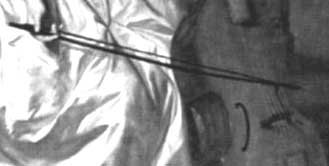
Metsu: bow for a bass viola da gamba.
Bass viola da gamba, bow at the Court of Louis XIV (1700): very long and straight, low frog, possibly black hair
Five 18th C. bows for the viola da gamba in the hands of famous soloists:
1. Jean-Baptiste Forqueray
2. Maximillian Kurfürst von Bayern
3. Mme Henriette de France
4. Marin Marais
5. Sir John Langham (1683)
6. Maximillian Kurfürst von Bayern in 1707
Note the German bow grip of two fingers on the bow stick, ring finger on the hair, also used by Kühnel. Note the high head, similar to the bow of Mme Henriette.
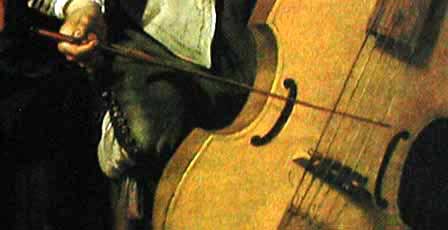
Dutch, 17. C. great bass viol
(Text and more photos will be supplied at a later date)
words of wisdom | bridges on violins
updated
